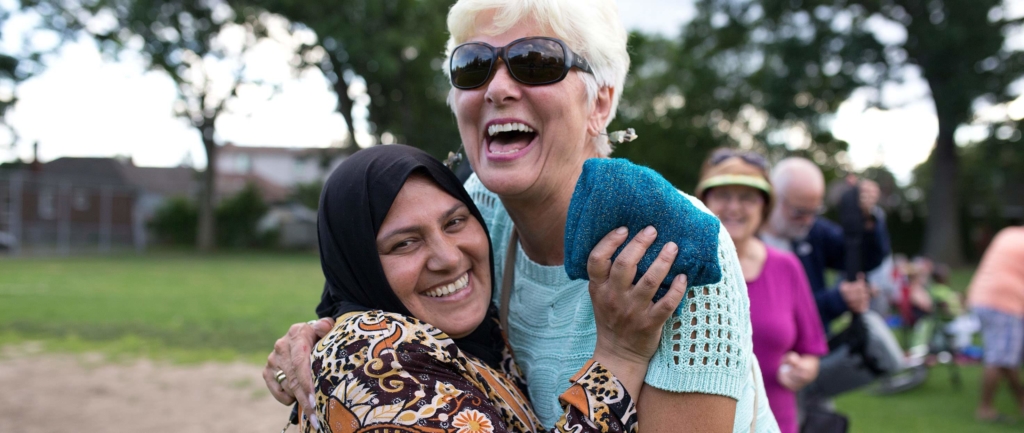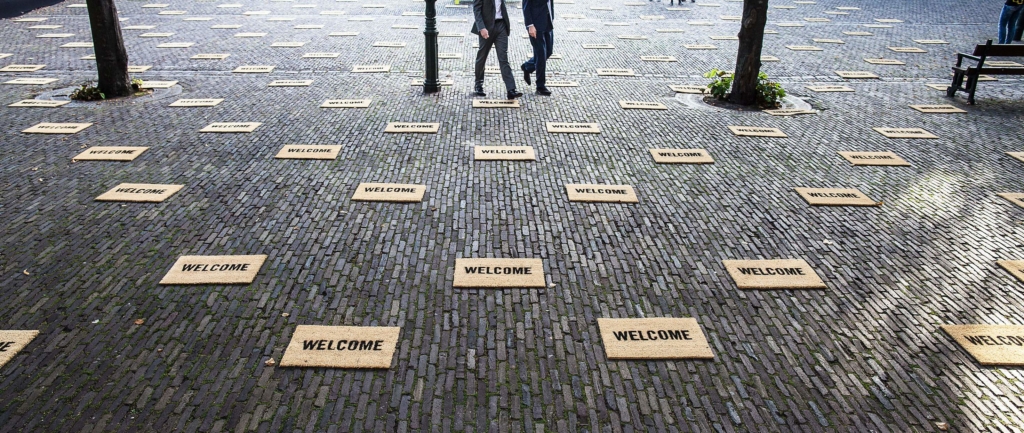Join the I Welcome Community
Around the world, individuals are doing simple things to make newcomers feel welcome in their communities.
We live in a world where people have no option but to flee their homes and countries – and rely on the kindness of strangers to help them start again.
Our governments aren’t doing enough. Many are holding these refugees in unsafe camps on borders, and refusing help to millions of others.
But there is so much that we can still do
Join the movement of people uniting to welcome refugees in their own ways. Whether it’s by adding your voice to a petition, taking action locally, or something unique to you: we’d love to stay in touch about what we can do together.
Because together, we are powerful.
GREAT THINGS HAPPEN WHEN PEOPLE COME TOGETHER

Right now, record numbers of people worldwide have been forced to flee their homes.
But instead of showing true leadership and protecting refugees, most countries are slamming their doors shut.
The world’s wealthiest nations are leaving a handful of countries to cope alone with nearly all the world’s 22 million refugees. Powerful media and politicians are manipulating reality and dehumanizing refugees, portraying them as illegal or faceless invaders who are a security threat.
The reality is that they’re ducking their responsibility to protect people fleeing violence, persecution and conflict. And every single day that goes by, their indecision and inaction continue to cause immense human suffering.
IF WE CAN’T RELY ON OUR POLITICIANS TO CHANGE THE WORLD, WE’LL DO IT OURSELVES.

A chance to start again
A 2017 survey of young people’s attitudes across the world showed that 87% of them stand ready to welcome refugees into their countries, communities – even their own homes.
Even when the political environment can feel deeply hostile, Amnesty International remains a movement of people who believe that the things that unite us are far more powerful than those that divide us.
This is why we are promoting people-powered initiatives like community sponsorship. We don’t have to wait around while governments get their act together to share responsibility for other important solutions, like resettlement.
Because right now, individual people all over the world are coming together in their own right to welcome refugees – simply because they empathise with people who have lost everything, and want to create open, friendly communities to live in.

Now is the time
Worldwide, almost all of our leaders are turning their backs on refugees. In Mexico and the USA, they are detaining people fleeing extreme violence raging in Central America. In Kenya, they are forcing Somalis who have lived in exile for years, even decades, to go back to a dangerous conflict zone.
Many European countries are deporting people seeking asylum back to countries where they could face torture, rape – even death. Or they make dangerous deals that stop people coming at all,leaving thousands of people with no option but to risk death crossing the Mediterranean. And Australia is locking up people fleeing torture and persecution on remote islands, where they suffer terrible neglect and abuse.
All of this needs to change, now. And it’s up to each and every one of us.
Together, we can lead the way by doing something concrete right now – however small – to welcome refugees in our communities, from signing a petition to speaking your mind about refugees’ rights, or joining a community group that supports them.



